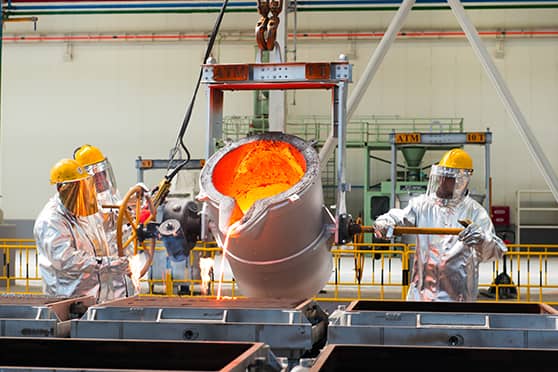
Metallurgical Engineering, also known as Materials Engineering, is a branch of engineering that focuses on the study of metallic materials, their properties, processing methods, and applications. Here’s an overview of the key aspects and a syllabus typically followed in India for Metallurgical Engineering:
Key Aspects:
- Material Properties and Behavior: Understanding the physical, mechanical, thermal, and chemical properties of metallic materials. Metallurgical engineers study the structure-property relationships of metals and alloys to predict their behavior under different conditions.
- Metal Casting and Forming: Study of metal casting processes such as sand casting, investment casting, and die casting for shaping metallic components. Metallurgical engineers learn about casting defects, mold design, and process optimization for producing high-quality castings.
- Metal Joining and Welding: Techniques for joining metallic materials using welding, brazing, and soldering processes. Metallurgical engineers study welding metallurgy, heat affected zone (HAZ) behavior, weldability of materials, and welding defects.
- Metal Deformation and Heat Treatment: Understanding the behavior of metals under mechanical deformation and heat treatment processes. Metallurgical engineers learn about forging, rolling, extrusion, and heat treatment techniques to modify the microstructure and properties of metals.
- Corrosion and Surface Coatings: Study of corrosion mechanisms and methods for corrosion prevention and control. Metallurgical engineers develop protective coatings, surface treatments, and corrosion-resistant materials to enhance the durability and longevity of metallic components.
- Metallic Alloys and Phase Diagrams: Understanding the composition, structure, and phase transformations in metallic alloys. Metallurgical engineers analyze phase diagrams, solidification behavior, and alloying effects to design and optimize alloy compositions for specific applications.
- Materials Characterization Techniques: Techniques for analyzing the microstructure, composition, and properties of metallic materials. Metallurgical engineers use microscopy, spectroscopy, diffraction, and other analytical methods to evaluate material quality and performance.
- Materials Selection and Design: Selection of materials for engineering applications based on performance requirements, cost considerations, and environmental factors. Metallurgical engineers assist in material selection, design optimization, and failure analysis to ensure product reliability and performance.
Syllabus (Typically Followed in India):
- Engineering Mathematics:
- Calculus
- Differential Equations
- Linear Algebra
- Probability and Statistics
- Basic Sciences:
- Physics
- Chemistry
- Material Science
- Material Properties and Behavior:
- Mechanical Properties of Materials
- Thermal Properties of Materials
- Phase Transformations
- Chemical Properties of Metals
- Metal Casting and Forming:
- Casting Processes
- Metal Forming Processes
- Casting Defects and Remedies
- Metal Joining and Welding:
- Welding Processes
- Brazing and Soldering
- Welding Metallurgy
- Welding Defects and Inspection
- Metal Deformation and Heat Treatment:
- Metal Working Processes
- Heat Treatment of Metals
- Mechanical Properties of Metals
- Deformation Mechanisms
- Corrosion and Surface Coatings:
- Corrosion Mechanisms
- Corrosion Prevention Techniques
- Surface Coatings and Treatments
- Electrochemical Corrosion Testing
- Metallic Alloys and Phase Diagrams:
- Phase Equilibria
- Binary and Ternary Phase Diagrams
- Solidification Behavior
- Alloy Design and Optimization
- Materials Characterization Techniques:
- Optical Microscopy
- Scanning Electron Microscopy (SEM)
- X-ray Diffraction (XRD)
- Energy-Dispersive X-ray Spectroscopy (EDS)
- Materials Selection and Design:
- Material Selection Criteria
- Failure Analysis
- Design for Manufacturability
- Environmental Considerations
- Project Work and Industrial Training:
- Students typically undertake a project in their final year, where they apply their knowledge and skills to solve a real-world problem or conduct research in metallurgical engineering. They may also undergo industrial training or internships in metallurgical industries, foundries, or research laboratories to gain practical experience.
This syllabus provides students with a comprehensive understanding of metallurgical engineering principles and prepares them for careers in industries such as manufacturing, automotive, aerospace, construction, mining, and materials research. Graduates in metallurgical engineering play a crucial role in developing and optimizing metallic materials and processes to meet the growing demands of modern technology and industry.
